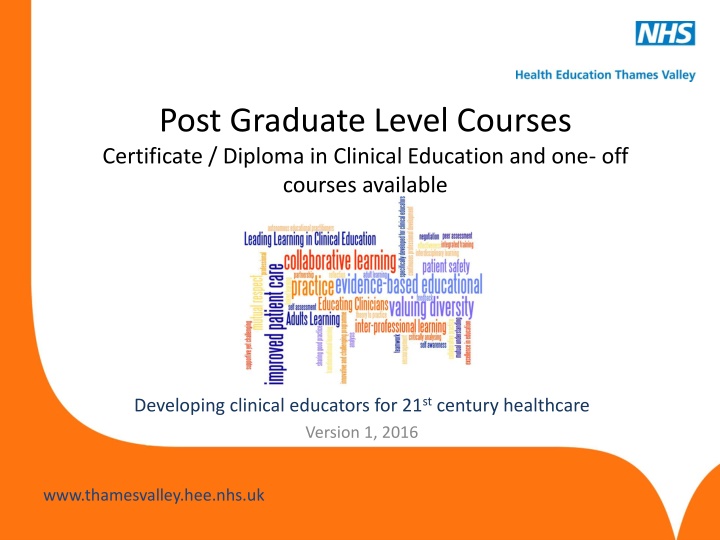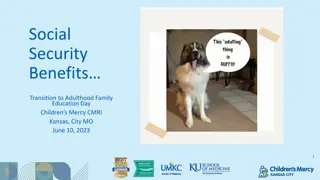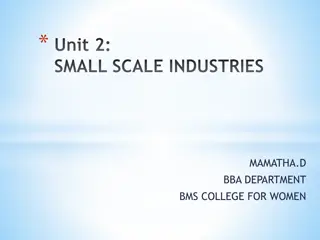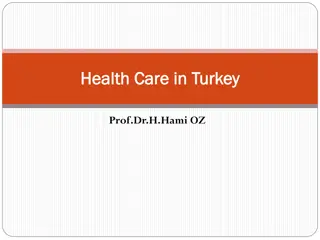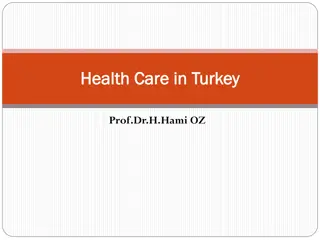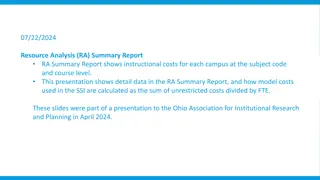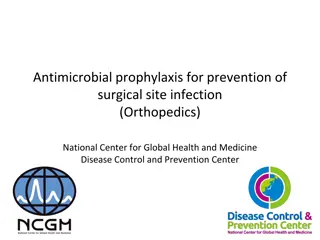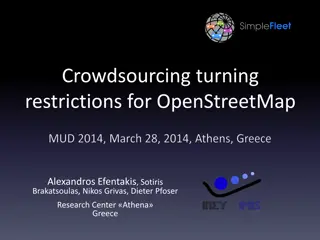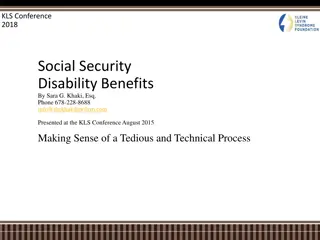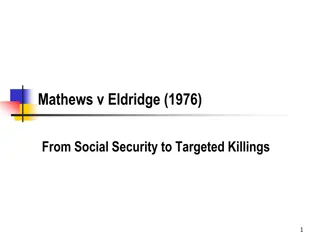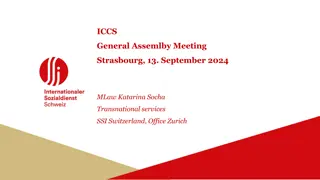Your SSI Benefits When Turning 18
Discover the key differences between SSDI and SSI, navigate the redetermination rules at the San Bernardino, CA Social Security office, and learn about the medical information the SSA requires for disability claims. Get insights into the definition of disability under SSDI & SSI and the concept of Substantial Gainful Activity.
Download Presentation

Please find below an Image/Link to download the presentation.
The content on the website is provided AS IS for your information and personal use only. It may not be sold, licensed, or shared on other websites without obtaining consent from the author.If you encounter any issues during the download, it is possible that the publisher has removed the file from their server.
You are allowed to download the files provided on this website for personal or commercial use, subject to the condition that they are used lawfully. All files are the property of their respective owners.
The content on the website is provided AS IS for your information and personal use only. It may not be sold, licensed, or shared on other websites without obtaining consent from the author.
E N D
Presentation Transcript
Post Graduate Level Courses Certificate / Diploma in Clinical Education and one- off courses available Developing clinical educators for 21stcentury healthcare Version 1, 2016 www.hee.nhs.uk www.thamesvalley.hee.nhs.uk
What is the course? A nationally recognised, academic programme at Master s level Run by HEE TV and validated 2015 by Oxford Brookes University. An innovative and challenging programme designed specifically to develop clinical educators A modern course relevant to contemporary NHS priorities that places learning and teaching in the context of the patient Interdisciplinary to encourage learning together across the NHS www.hee.nhs.uk www.thamesvalley.hee.nhs.uk
The Course Foundations This course is designed to encourage learners to use their own reflections, feedback and educational literature to drive their development as an educator By developing an understanding of the wider NHS context and individual working environments, learners are encouraged to contextualise educational theories to make them relevant to their personal context www.hee.nhs.uk www.thamesvalley.hee.nhs.uk
Who is it for? Anyone working in the healthcare sector with a training role: Educational leads (e.g. Directors of Medical Education, School heads, Training Programme Directors, College Tutors etc.) Speciality trainers in all disciplines (Clinical and Educational Supervisors, GP Trainers, Dental Trainers, Pharmacy Trainers, Nursing Trainers etc.) Anyone else who thinks this course might be relevant is welcome to make contact for more information www.hee.nhs.uk www.thamesvalley.hee.nhs.uk
Entrance requirements: All applicants to the programme should: be employed in, or have access to, a health care setting that will enable the achievement of the learning outcomes i.e. hold a post which includes a significant role as an educator/facilitator in a health care setting hold an honours degree or a professional qualification equivalent to a first degree or be able to provide evidence of their ability to study at level 7 meet the English language requirements of Oxford Brookes University http://www.brookes.ac.uk/international/apply/English www.hee.nhs.uk www.thamesvalley.hee.nhs.uk
Entrants with a clinical role should also be a registered health care professional with a registration acceptable to the relevant United Kingdom professional body have a minimum of two years professional practice experience www.hee.nhs.uk www.thamesvalley.hee.nhs.uk
The courses Each module consists of an intensive 3-day course (residential for PGCert modules and non-residential with accommodation available for Diploma modules). In addition there is online interaction before and afterward each course Cumberland Lodge for PGCert modules, Diploma modules in Oxfordshire, venue to be confirmed Teaching is highly interactive and combines short lectures, small group work and online interaction. The course is taught by a multi-professional team of educators from a variety of clinical and educational backgrounds to give a rich wealth of expertise. www.hee.nhs.uk www.thamesvalley.hee.nhs.uk
The Modules Adults Learning Educating Clinicians Leading Learning in Clinical Education Post Graduate Certificate in Clinical Education Improving Patient Care Through Learning and Teaching Enhancing Clinical Teaching and Learning Through Creativity Transforming Learning in Groups and Teams Assessment and Evaluation Teaching Communication and Consultation Skills in the Modern NHS Work Based Learning Advanced Research Design Diploma / Master's Modules www.hee.nhs.uk www.thamesvalley.hee.nhs.uk Each module is worth 20 Credit and Accumulation Transfer (CAT) points
Entry and Exit Points www.hee.nhs.uk www.thamesvalley.hee.nhs.uk N.B. It is also possible to take modules 4 9 as individual study modules
When Adults learning February Educating Clinicians June Leading Learning in Clinical Education November Work Based Learning module runs according to learner need Advanced Research Design runs according to Oxford Brookes University schedule (see their website) All other Diploma modules are run on a two year rolling basis. Timings are finalised according to interest and uptake to ensure the course best meets the needs of learners. www.hee.nhs.uk www.thamesvalley.hee.nhs.uk
Dates of 2016/2017 modules The PG Cert Clinical Education runs over a calendar year with modules being in February, June and November. Enrolments will be taken for the 2017 course from May 2016 (gpadmin@thamesvalley.hee.nhs.uk for information). The PG Dip Clinical Educationwill offer 3 modules in 2016/7 Improving Patient Care Through Learning and Teaching (Sept 26th 28th 2016) Assessment and Evaluation (Jan 16th 18th 2017 tbc following introductory event 19/06/16) Transforming Learning in Groups and Teams (May 22nd 24th 2017 tbc following introductory event 19/06/16) www.hee.nhs.uk www.thamesvalley.hee.nhs.uk
2016-2017 module fees PG Certificate in Clinical Education (2017) 3 modules at 756 per module (HEE TV region) 985 (outside HEE TV region) Residential at Cumberland Lodge, Windsor Great Park PG Diploma in Clinical Education (2016/2017) 775 per module Non-residential: overnight accommodation can be booked directly with venue. (Venue in Oxfordshire to be confirmed). www.hee.nhs.uk www.thamesvalley.hee.nhs.uk
Finding out more The following slides have more information about each of the modules HEE TV is hosting an information session on the PG Cert / Dip Clinical Education programme on Friday June 10th 09.30 12.30 at The Kassam Stadium, Oxford For further information on the course or to book a place at the information session please contact Katy.newell-jones@thamesvalley.hee.nhs.uk (Programme Director) www.hee.nhs.uk www.thamesvalley.hee.nhs.uk
Adults Learning Module aims This module explores the role of the educator/trainer in clinical education, recognising the importance of identifying learners needs, learning preferences and agendas, whilst also encouraging self-awareness, reflection and personal development planning on the part of the educator. Course participants are encouraged to critique adult and transformational learning theory and link this to current educational practices in their professional domain. Theory and practice are integrated through devising, delivering and evaluating taught sessions. Through this process course participants are more able to make informed choices in their role as clinical educators/trainers. www.hee.nhs.uk www.thamesvalley.hee.nhs.uk
Adults Learning Outline syllabus Promoting self-awareness as an educator and the role of reflection in educator development Understanding learning preferences and styles and their potential role in facilitating learning Understanding the role of adult learning theory and transformational learning in clinical education Developing an awareness of the value of the health professional- patient relationship in the educator s/trainer s approach to teaching and learning Structuring teaching episodes using the learning cycle, tutorial and consultation models Incorporating giving and receiving feedback as an essential component of clinical education www.hee.nhs.uk www.thamesvalley.hee.nhs.uk
Educating Clinicians Module aims This module takes place over a period of at least 6 months, during which course participants develop and extend their skills in devising, implementing and evaluating effective learning programmes within the clinical setting. The module is based on a spiral curriculum, and grounded in adult learning and transformational learning theory. The complex and rapidly evolving field of learner/trainee assessment in clinical education is explored, with opportunities for course participants to understand and use the assessment tools from their specialty. The aim is to promote transformational learning and develop autonomous, reflective learners which will enhance patient care/experience. Opportunities are provided for course participants to increase their understanding of group processes and to acquire new skills in managing groups of learners and colleagues. In addition learners broaden their planning process from single tutorials to series of teaching sessions developing an understanding of key approaches to curriculum planning. Throughout the module, course participants are engaged in critical analysis of themselves as clinical educators/trainers. This process is supported by feedback from peers and learners/trainees both in simulated activities and with direct contact with learners in their clinical work context. www.hee.nhs.uk www.thamesvalley.hee.nhs.uk
Educating Clinicians Outline syllabus Needs assessment; identifying clinical educator/trainer and learner/trainee needs, preferences and agendas and using these to negotiate a learning journey Models of learning and teaching for the acquisition of skills knowledge and attitudinal change Assessment theory including reference to formative and summative assessment and tools Assessment of competence using generic and specialty specific tools, including case-based discussion (CBD) and direct observation of procedural skill (DOP) Simulated teaching and feedback Curriculum theory and programme development Group processes and facilitation skills Managing poor performance www.hee.nhs.uk www.thamesvalley.hee.nhs.uk
Leading Learning in Clinical Education Module aims This module enables participants to examine the broader context within which clinical education programmes are devised, delivered, assessed and evaluated. Course participants will critique the national policy framework and identify the potential drivers for, and inhibitors of, changes in clinical education at national and local levels. Change management and learning organisation theory will be critically analysed as essential tools for leaders in clinical education creating effective learning environments, increasingly involving multi-professional teams across a range of delivery settings (dental, primary and secondary/specialist care). Through lectures, seminars and workshops course participants will develop an understanding of different approaches to learning including values based approaches, competency based approaches and outcomes based approaches and be able to relate these to the concept of patient centred education. Course participants will analyse the concepts of fitness for purpose and fitness for practice in relation to themselves as clinical educators/trainers, in the context of a constantly shifting healthcare system and economy. www.hee.nhs.uk www.thamesvalley.hee.nhs.uk
Leading Learning in Clinical Education Outline Syllabus National and international standards, policies and priorities, including patient safety Managing change and learning organisations Educational leadership Multi-professional / inter-professional teamwork Evaluating learning environments and culture Managing poor performance of learners/trainees www.hee.nhs.uk www.thamesvalley.hee.nhs.uk
Improving Patient Care Through Learning and Teaching - Module aims Patient safety and quality improvement are essential parts of all undergraduate and postgraduate medical curricula. This module is designed to equip clinical educators with two inter-related accomplishments: an understanding of the educational practices which support the establishment of effective approaches to safety and quality in patient care Educational strategies which help them to teach quality improvement and patient safety which are suitable in their own workplace and fit with their specialty curriculum. Participants will be encouraged to look critically at their own working context and systems. Building on this they should select, utilise and evaluate effective educational strategies which will enhance the capacity, of all involved in all aspects of health care, to improve patient care. This module also explores the relationship between good and improving patient care with an enlightened clinical and educational environment. www.hee.nhs.uk www.thamesvalley.hee.nhs.uk
Improving Patient Care through Learning and Teaching Outline syllabus Principles of patient safety, risk and quality improvement. Regulatory bodies, both educational and clinical, and organisational culture of standards of patient care. Environment needed to sustain effective systems to support safe and improving patient care and the educational strategies they need to achieve this Approaches which can to lead change, teach and sustain improvements in patient care. The teaching will draw on the relevant theories and practices encountered elsewhere on the programme and will include the coaching and mentoring skills needed to help trainees implement QI Relevance to each participant s working environment and help them develop teaching strategies appropriate to the context in which they work and the people they are expected to teach. This knowledge will be applied to the assignment which will involve designing and disseminating a specific QI Project www.hee.nhs.uk www.thamesvalley.hee.nhs.uk
Enhancing Clinical Teaching and Learning through Creativity Module aims The need to develop creative thinkers and educators within the NHS is now key given the current resource/service delivery demands of care provision (NHS England 2014; 2015). This module on teaching creativity in education is informed by the work of key contributors in this field. Indeed it addresses the question: What would make creativity part of the medical vernacular, become commonplace - the rule rather than the exception? (Kelly 2012). The aim is to enable clinical educators, through experiencing creativity, to teach on clinical disorders to: (i) transform their understanding of patient & learner perspectives; (ii) learn how to teach creativity use in learning in a clinical area of their choice. Patient care may well benefit course participants integrate their learning and development to teach new and creative ways of educating healthcare workers on the relevant clinical attitudes (empathy), cognitive and skill sets (e.g. generic professional & leadership capabilities, resilience). www.hee.nhs.uk www.thamesvalley.hee.nhs.uk
Enhancing Clinical Teaching and Learning through Creativity Outline syllabus Theories and models of creativity in education Current thinking behind the added values and challenges to innovation and creativity in clinical education. Creative educational approaches, including to simulation, role play and drama, use of literature, art and music to enhance learning Ethical issues of involving patients in clinical learning activities Learning culture, climate and environment needed to support the use of creativity in education Creativity, experiential learning and delivery of high quality and personal learning outcomes needed to teach creativity Creativity, learning across generic professional competency frameworks and patient care quality Teaching skills to teach creativity to teachers in healthcare education across high priority clinical domains (e.g. dementia, diabetes and obesity) or from a clinical are of their choice. Creating a culture of creativity in education and healthcare generally or What are we doing creatively? www.hee.nhs.uk www.thamesvalley.hee.nhs.uk
Transforming Learning in Groups and Teams Module aims Effective patient care is increasingly reliant on teams and interprofessional professional groups working together with changing role boundaries. This module explores how teams and groups learn and provides opportunities for course participants to enhance the way they support group and team development and learning in health and social care contexts to promote patient-centred care. The module has three interrelated aims: to foster an understanding of learning development in teams and groups to encourage participants to develop facilitation skills that enhance team and group learning development in their context to support the identification of educational strategies to teach the enhancement of learning and development in groups and teams The module will be experiential and interactive, enabling participants to discuss, experiment with, and evaluate educational strategies in a safe group setting. The assignment is linked to participants own practice as they develop, implement and evaluate a facilitation plan to address a facilitation challenge in their workplace to enhance patient care. www.hee.nhs.uk www.thamesvalley.hee.nhs.uk
Transforming Learning in Groups and Teams Outline syllabus Learning development in teams and groups The epistemological basis, nature and purpose of group and team theory, dynamics and learning development Group and team lifecycle (including composition, formation, socialisation, development, processes, effectiveness and enhancements, team leadership and motivation, and team continuance and decline) Modes of facilitation and types of interventions to promote team and group learning Managing complexity and diversity in groups and teams Group and team learning and development in health and social care contexts Multiple roles of groups and teams in health and social care Multi-professional group and teamwork: an additional challenge? Strategies for groups and teams to learn across their own boundaries Improving patient care through team reviews of critical incidents, case reviews, audit reviews and complaints Experiential learning The role of self as facilitator Identifying and managing own facilitation challenges Strategies to teach enhancing learning in groups and teams www.hee.nhs.uk www.thamesvalley.hee.nhs.uk
Assessment and Evaluation Module aims The module will encourage learners to think critically about the impact of assessment on learning, learners and the wider clinical and political context. Learners will emerge with a strong understanding of how assessment, both summative and formative, can be used as a positive driver for learning and a constructive influence on education and educational policy. Learners will analyse the assessments and evaluations that they undertake in their practice. They will develop an understanding of the key principles of assessment and evaluation and critique the advantages and drawbacks of different approaches in the healthcare environment. Overarching principles of qualitative to quantitative and formative to summative will be explored in the learner s context. This module will also develop learners understanding of a variety of evaluative approaches from qualitative to quantitative, inductive to deductive and narrative to scientific. Learners will apply these principles to the healthcare and clinical education context and in doing so critique the approaches and consider the standards to which evaluation should be held to ensure rigorous evaluative process. www.hee.nhs.uk www.thamesvalley.hee.nhs.uk
Assessment and Evaluation Outline syllabus General principles of evaluating a summative assessment and the backwash effect of summative assessment on individual approaches to learning, motivation and anxiety and how assessment can act as a barrier to learning/progression. Principles of formative assessment including self-assessment and peer assessment, assessment for/as learning and validity. Assessment in the clinical setting including the use of competence based assessment and portfolios as assessments. Why do we assess? How do we involve patients in assessment? Where do we set the bar in the clinical context? Are we setting a baseline or striving for greatness? What is the predictive validity of assessments in clinical practice? Assessment and culture what are the implications of assessment for a diverse society? Different epistemological approaches to evaluation, including those that are process driven and those that are more context driven. The benefits and limitations of each approach to the process of evaluation and how different methodologies can be combined to produce richer, more triangulated evidence of the change. Methods of dealing with qualitative data. Implications of intended and unintended outcomes in defining the evaluand and the difficulties in defining quality and at what level this is considered: Process/learner/team/peers/patient. Potential bias and the relationship between the evaluator s natural dispositions in relation to evaluation process Standards of rigorous evaluators and evaluations Summative vs formative evaluation. Is formative evaluation simply monitoring? What are the benefits and drawbacks of inductive and deductive approaches to information gathering? Participatory or evaluator as expert - who should be involved in evaluation? How can we involve patients in evaluating educational change? www.hee.nhs.uk www.thamesvalley.hee.nhs.uk
Teaching Communication and Consultation Skills in the Modern NHS Module aims The aim of the module is to develop clinical educator capacity to educate the NHS workforce on clinically effective communication and consultation skills that place the patient at the heart of clinician education and development. Clinical decision making is included within this framework. The module will build on the learning outcomes of the postgraduate certificate, starting with developing participants deeper awareness of shared language and of the role of self and interpersonal dynamics on clinical settings. The content proceeds to a critical understanding of communication and consultation constructs and models thereof, including feedback. Skills development is promoted through participants analysis of the quality of their own patient clinician interactions and of their own performance as educators of communication and consultation skills. Placing the patient at the heart of clinical education is emphasised across each of the learning outcomes. www.hee.nhs.uk www.thamesvalley.hee.nhs.uk
Teaching Communication and Consultation Skills in the Modern NHS Outline syllabus Self-awareness in communication and consultation A shared language and understanding interpersonal dynamics across these domains Constructs and models of communication and consultation processes, including and feedback processes and apply critically in teaching practice Quality awareness of patent-clinician interaction, applied within a generic professional competency framework. Critically analytic approach to patient clinician interaction based on this understanding and from multiple other perspectives (i.e. relatives, arrest, and other agencies). Skills teaching communication and consultation skills to clinical practitioners and to patients Critically reflective approach to teaching capacity and performance leading to satisfactory evaluation of same www.hee.nhs.uk www.thamesvalley.hee.nhs.uk
Work-Based Learning Module aims Work-based learning (WBL) is an important mode of delivery of education programmes which offers significant opportunities for course participants to select their own learning outcomes and linking these to their professional role and the enhancement of their professional practice. This module provides a flexible framework within which course participants can access the themes of the optional modules of the PG Dip. CE using a WBL contract as an alternative to the study block mode of delivery. Course participants will develop a WBL contract with support from their workplace mentor and course tutor which is presented for approval to the programme WBL panel. This WBL contract includes bespoke learning outcomes and a series of agreed learning activities in the workplace designed to achieve a specific aim, through which the course participant gains insight into their practice and implements or recommends specific changes. Course participants are also able to propose a creative method of presenting their achievements as part of their final portfolio. Course participants are likely to be self-directed learners with a role which enables them to implement changes in their workplace. Through undertaking this module, course participants will also develop knowledge and skills in relation to WBL. They will have enhanced their ability to support colleagues (tutors, educational supervisors and clinical supervisors) and learners involved in WBL. www.hee.nhs.uk www.thamesvalley.hee.nhs.uk
Work-Based Learning Outline syllabus Tutorials with course tutors will support course participants in engaging with the process of WBL, exploring issues such as time, feasibility, ethical considerations and validity as they develop their WBL contract. Through this process course participants will extend their academic literacy, research literacy, critical self-awareness and personal literacy. Tutorials with workplace mentors will support course participants in ensuring the WBL contract is realistic and achievable, relevant to the workplace and within the skill set and role of the course participant. Through this process course participants will extend their critical self-awareness, personal literacy and active citizenship. Digital and information literacy will be developed through the use of information technology as a research tool and through interactions with other WBL course participants and members of the module team. WBL contracts will be submitted to the programme WBL panel by the end of week 2. This panel of three people will consist of the WBL module leader a member of the programme team with expertise relevant to the WBL contract a health professional from the course participant s specialty. The assignment requires the demonstration of self-awareness as an educator combined with self-direction as a learner devising, delivering and evaluating a WBL project critical reflection on their achievements in relation to the WBL contract and the process of learning. www.hee.nhs.uk www.thamesvalley.hee.nhs.uk
Advanced Research Design Module aims This module aims to equip students with skills to find, appraise and utilise research, as well as plan and design a piece of research work. It seeks to prepare students to define a suitable research question and to use this as a basis for identifying appropriate research methodologies for a small-scale research project or dissertation. This module is designed to impart the skills to enable students to plan and outline a rationale for a piece of primary research, secondary analysis, literature review or audit. It focuses on research as part of a body of evidence used for health and social care practice, and provides an overview of methodologies and methods commonly used in health and social care policies and working environments. www.hee.nhs.uk www.thamesvalley.hee.nhs.uk
Advanced Research Design Outline syllabus Identifying research topics and formulating questions Advanced literature searching Quantitative Research Methods Qualitative Research Methods Secondary Data Methods Critical Appraisal Ethics In Research Evaluation and Audit www.hee.nhs.uk www.thamesvalley.hee.nhs.uk
